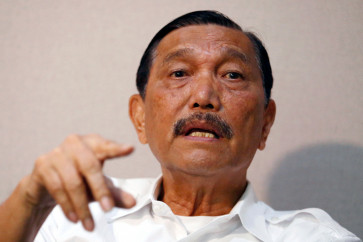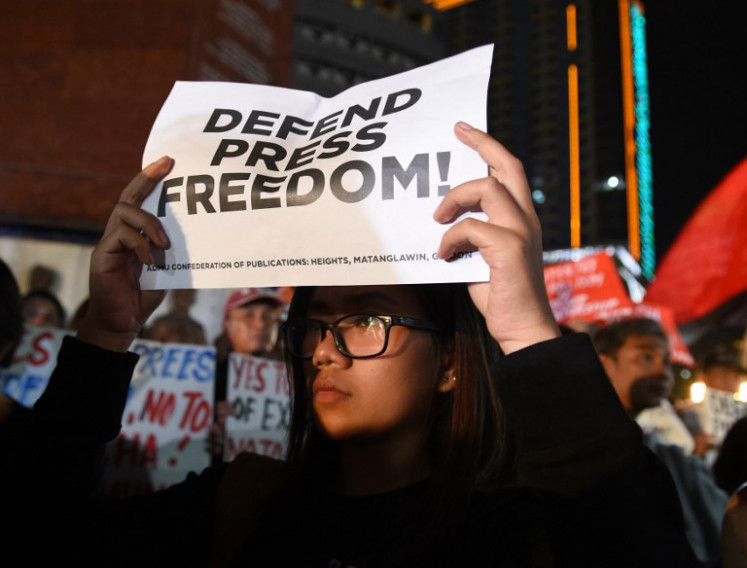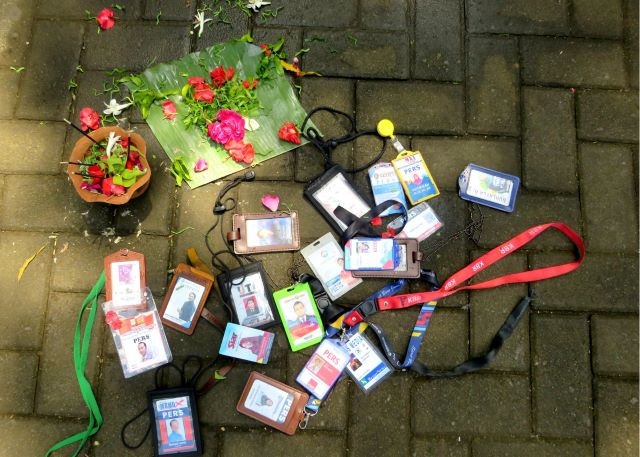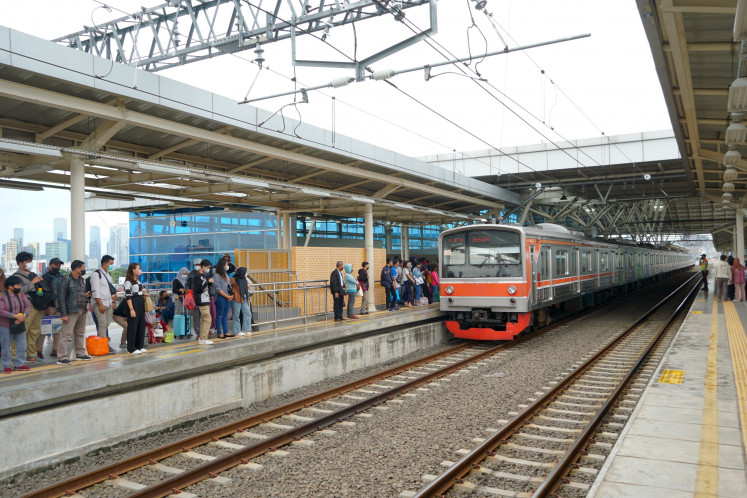Mandiri racks brain to expand business
Partnership: Bank Mandiri president director Kartika Wirjoatmodjo (left) and NongHyup Financial chairman and CEO Kim Yong-hwan talk after a signing ceremony at Plaza Mandiri in Jakarta on Monday
Change Size

P
span class="inline inline-center">Partnership: Bank Mandiri president director Kartika Wirjoatmodjo (left) and NongHyup Financial chairman and CEO Kim Yong-hwan talk after a signing ceremony at Plaza Mandiri in Jakarta on Monday. Indonesia’s largest lender in terms of assets is cooperating with the South Korea-based financial group to provide loans for cooperatives, farmers, commerce, remittance services and financial technology in Indonesia. (JP/Firdhy Esterina)
State-owned lender Bank Mandiri is racking its brain over how to expand its business amid a slight slowdown in the banking industry.
The bank is preparing to venture out of its comfort zone, targeting the agribusiness sector for micro loan disbursement.
Mandiri — which traditionally focusses on corporate lending — says the decision to dig deeper into agribusiness is a way to fulfill the government’s requirement to disburse 40 percent of its allocated micro loans (KUR) to productive activities.
Agribusiness is among the bank’s preferred sectors and accounted for 11 percent of total loans disbursed by the bank last year, equal to Rp 72.8 trillion (US$5.87 billion).
“We have been asked [by the government] to shift our KUR disbursement to productive sectors,” Bank Mandiri president director Kartika “Tiko” Wirjoatmodjo said in Jakarta on Monday.
The bank has been ordered by the government to disburse Rp 13 trillion-worth of KUR in 2017, the same amount as last year.
However, “Bank Mandiri is not a lender that has expertise in micro lending, as we entered the sector just recently,” Tiko said.
To solve that problem, Mandiri will approach its existing clients’ business partners under a value chain scheme, which the bank believes will help maintain its credit quality.
It signed a memorandum of understanding (MoU) with South Korea’s NongHyup Financial Group to improve its expertise in agriculture financing as well.
One of the group’s subsidiaries is NongHyup Bank, the sixth-largest lender in South Korea with a strong network in rural areas.
The agreement covers cooperation in corporate financing, trade financing, remittances, financial technology (fintech) development and agriculture financing. It is the second MoU inked between the two companies.
“The first MoU established the fundamental framework [for the partnership],” NongHyup chairman and CEO Kim Young-hwan said, adding that, “With the second MoU, we expect to complete the cooperative platform.”
NongHyup Bank channels its loans through farmer unions, but Tiko said Mandiri was still looking for a suitable scheme to allow for loan disbursement with controlled risks, given its low number of branch offices for micro loans in rural areas.
State-owned lender Bank Rakyat Indonesia (BRI) is currently the biggest player in the micro loan segment.
Meanwhile, data from the Financial Services Authority (OJK) show that the banking industry’s loan growth slowed to 8.71 percent year-on-year (yoy) in May from 9.47 percent yoy in April.
Mandiri also recorded a slowdown in growth to 12.8 percent yoy in May from 14.4 percent yoy in April, according to its latest financial report.
It eyes an annual rise of 11 to 13 percent to Rp 734.82 trillion in its outstanding loans in 2017 and booked 80 percent of the target as of May.
Mandiri is not the only bank making use of the value chain scheme, with state-owned lender Bank Negara Indonesia (BNI) previously saying that it utilized its partnerships with big firms to increase loan disbursement to their medium-sized partner companies.
Thanks to its focus on the infrastructure sector, BNI had the chance to develop its business in supply chain financing and to tap new sources of funding and fee-based income, BNI consumer business director Anggoro Eko Cahyo said recently.









